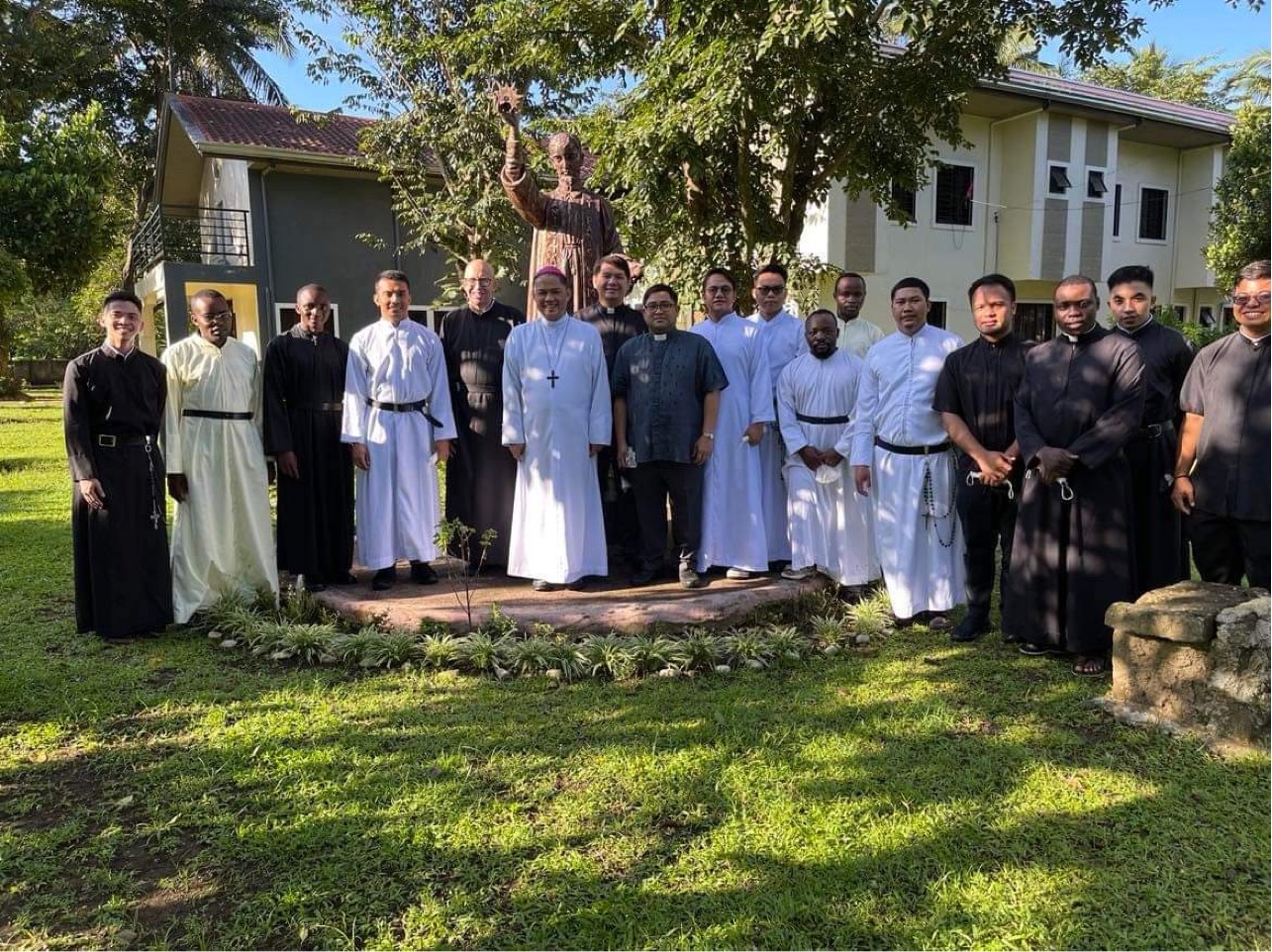Over the past years, I have been enriched by living and working in Houses of Formation that are international in nature and also in parishes of our Order as well. In fact, just recently at the lunch table, I overheard some of our young brothers alluding to some of their challenges and, at the same token, the joys of accepting one another as brothers. One Congolese brother happily stated that though we are black, white, brown and yellow our blood is red! We are all “Adornos…..Religiosi Caracciolini”….living in one family. Ideally, our CRM international communities should begin with the Houses of Formation, ideally starting with the Novitiate.
Nobody wants to trivialize the challenges of intercultural Houses of formation. Such a process is indeed a difficult task but one that is well worth it for it enriches the Formators, formandi and ultimately the entire Order. I was reading a reflection on this from the “VOCATIONAL DISCERNMENT AND FORMATION IN AN INTERCULTURAL WORLD EXPERIENCE AND VISION OF CAMILLIAN FORMATORS “. In this particular article, which was published in 2017, it was noted that “Formation in an intercultural context requires that everyone be constantly engaged in one’s ‘internal pilgrimage’: from one’s own culture to that of the other, and all together towards the culture of the Gospel and of consecrated life. It is important to recognize that there is no ideal or superior culture. We are all gathered in Christ. Our differences are values we should accept and appreciate. …and that…. In the process of formation priority should be given to sowing the ‘Gospel culture’, which professes universal love, for Jesus has come to save all humanity and its different cultures. We believe that the human being, who is free by his own nature, can also transform culture.
I must say that for the CRM, an understanding for the appreciation and respect for other cultures is not something that is new. In fact, I discovered this in some of the texts of the Clerics Regular Minor. The other day, I stumbled across a booklet from our Spanish Provinces entitled “Reglas comunes de los Clérigos Regulares Menores” and it was published in Madrid in 1818 and translated from the original Latin by one of our priests, Father Mauricio Velez de Cosío, CRM.
In Chapter XVIII, entitled “Reglas acerca de la caridad fraterna, y uniformidad que se ha de guardar” (“Rules about fraternal charity, and uniformity that must be kept”) underlines rules that are to be kept by the members of the Clerics Regular Minor. Chapter XVIII , number 1 states that:
The common method of life by which all the religious men dwell with uniformity of lifestyle in the house of the Lord, and are drawn together by the hope of vocation to form a single body, can only be sustained with security and firmness through the bond of charity which must unite them, so that this bond may never be dissolved, each one will try to avoid all those things which may cause the least discomfort to one of his brothers.
And subsequently, in Number II, we read:
For this reason, let no one dare to surprise or offend others in what they speak; let no one reproach others with the rudeness of their customs; let no one speak ill of the nation or country of another or show signs of dislike for it as they say it; but rather let us give our foreign brothers very particular signs of most sincere affection. And in order to guard against any occasion of violating charity, let no one meddle recklessly in the office of another; let no one take from the offices without the consent of those to whom they are entrusted, nor from the room of another without the permission of the superior the least thing; and if anyone should contravene this, he will be severely corrected by the superior.
Our Fathers in the CRM were encouraging us to be united as one and to respect one another. They realized that at times, there was tension between the Spanish and Italian Provinces, and within Italy itself, tensions between the Roman, Neapolitan and Sicilian Provinces. Such tensions still exist today, but we as religious must strive to go beyond our own “comfort zones” and preconceived notions. Our CRM brethren from different cultures are a gift for us all. Let us cherish this gift which is an integral part of our community. Pope Francis once stated that ““For me this word is very important. Encounter with others. Why? Because faith is an encounter with Jesus, and we must do what Jesus does: encounter others.” As members of the Body of Christ, we are each created in the image of and loved by God, we are called to form relationships with one another, and we are called to “create a culture of encounter.”
Chapter IV of our present Constitutions note that:
- The value of the common life is to be accepted and esteemed by all, for with it we participate in the mystery of the Trinitarian life, and become in the Church and in the world creators and witnesses of that communion of love, expressed in the commandment of Jesus: “This is my commandment: love one another as I have loved you” (Jn15:12), and in his prayer: “…that they may be one as you, Father, are in me, and I in you; I pray that they may be one in us” (Jn17:21).
- The source of this common life is the Spirit of the risen Lord who, present in us, gradually transforms our heart and makes possible our being together in charity.
Rev. Michael Marotta, CRM
Local Superior





